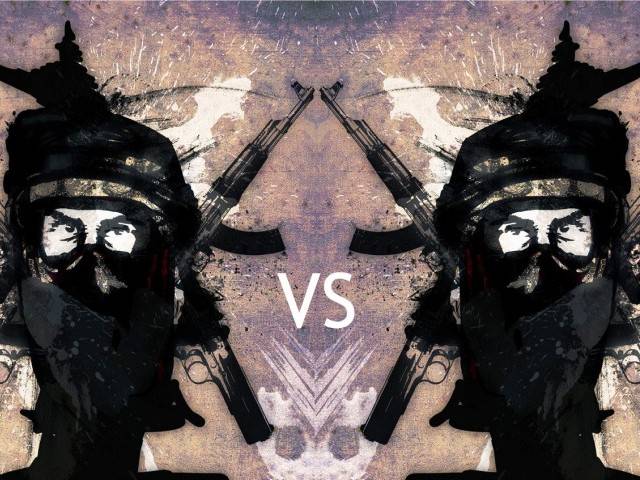WASHINGTON- The Haqqani Network, a terrorist group that the U.S. command in Afghanistan said was its most formidable enemy, worse than the Taliban or al Qaeda, had operated for a dozen years across the border in Pakistan's North Waziristan tribal area with little to fear other than sporadic drone strikes. Now, even the drone strikes have stopped for the family-run gang that held Army Sgt. Bowe Bergdahl for five years, Washington Post reported.
In 2011, President Obama authorized a volley of drone hits on Haqqani headquarters in the town of Miranshah. The strikes were supposed to be the beginning of a concerted effort to stop Haqqani terrorists from attacking Americans in Afghanistan, but the campaign was short-lived.
"They could not pursue them as military planners had wanted to," said Bill Roggio, managing editor of The Long War Journal, citing too few troops as the reason. Attacks stopped altogether this year as the Obama administration negotiated with the Taliban, a fused ally of the Haqqani group.
One analyst said that in addition to trading five senior Taliban leaders to win Sgt. Bergdahl's release Saturday, the U.S. appears to have suspended its drone war in Pakistan and let targets slip away.
National security analysts say that neither the U.S. nor Pakistan has launched a comprehensive campaign to take down the group that the U.S designated a terrorist organization in 2012.
It is in and around Miranshah where Jalaluddin Haqqani, a veteran of the U.S.-backed mujahedeen against the Soviets in the 1980s, and his son Sirajuddin control 10,000 fighters, complete with training bases and religious schools for children. From there, they have executed some of the most brutal attacks inside Afghanistan, with a focus on Kabul. Haqqani militants are responsible for improvised explosive device attacks that kill Americans across the border in provinces such as Paktia, where Sgt. Bergdahl walked away from his unit in 2009. Sgt. Bergdahl surely will be asked all he knows about Haqqani when intelligence officers debrief him during the military's reintegration process.
Ask national security analysts why the Haqqani Network prospers in war and in illegal contraband, and the answer is always the same: "It's the Pakistani tie. It's because of his ties with Pakistan and their intelligence service," said Larry Johnson, a former CIA and State Department official, explaining why Jalaluddin Haqqani enjoys a safe haven even though Pakistan is supposed to be a U.S. ally. "It's almost like we're putting the gloves on instead of taking the gloves off."
Mr. Johnson said he knows of no concerted CIA-military campaign to eliminate the Haqqani organization in Afghanistan and take away the safe haven across the border. "The Haqqanis have been unhindered since really December," he said. "You have to go back and look at the broader negotiations. What the Taliban was demanding and the Haqqanis were demanding was for the U.S. to back off on the drone strikes and step down on the counterinsurgency patrols. And we did all that."
Saturday, April 20, 2024
Haqqani Network grows into worst enemy for US: Washington Post

Caption: Haqqani Network grows into worst enemy for US: Washington Post
Volcanic eruptions in Indonesia affect thousands of passengers
10:30 AM | April 20, 2024
Freedom Flotilla prepares for humanitarian aid delivery to Gaza
9:14 AM | April 20, 2024
Sindh govt signs lease land accord for Dhabeji SEZ
April 20, 2024
Health activists for ban on small cigarette packs
April 20, 2024
Policitising Tragedy
April 20, 2024
Tehran to Rafah
April 20, 2024
A New Leaf
April 20, 2024
A Tense Neighbourhood
April 19, 2024
Dubai Underwater
April 19, 2024
Dangers of Deepfakes
April 20, 2024
Feudalism
April 20, 2024
Kite tragedy
April 19, 2024
Discipline dilemma
April 19, 2024
Urgent plea
April 19, 2024
ePaper - Nawaiwaqt
Advertisement
Nawaiwaqt Group | Copyright © 2024





